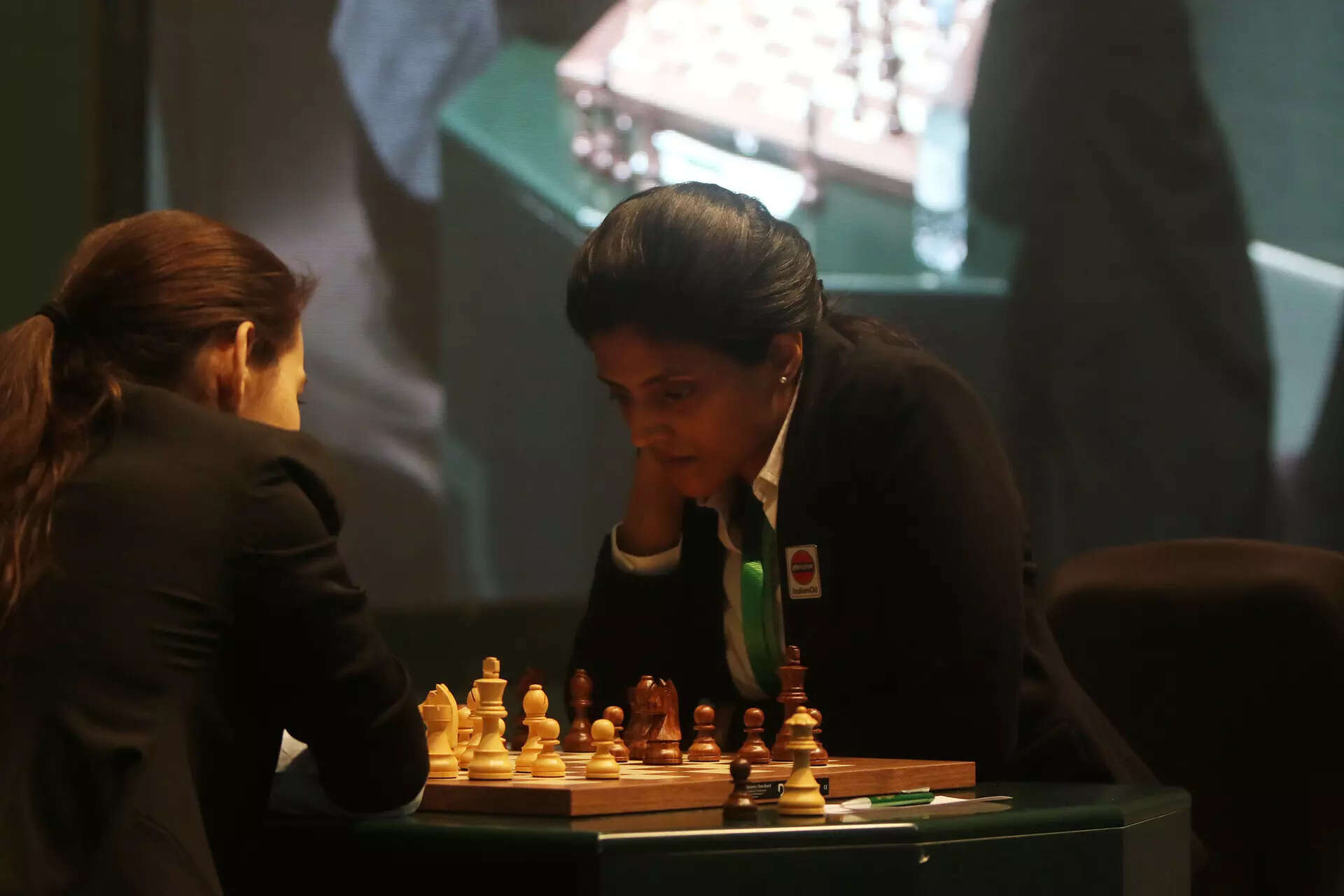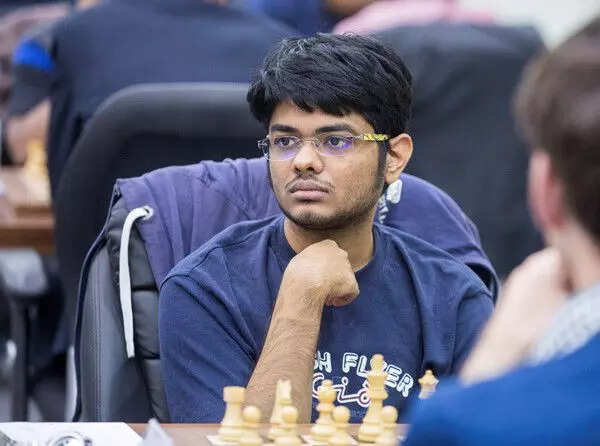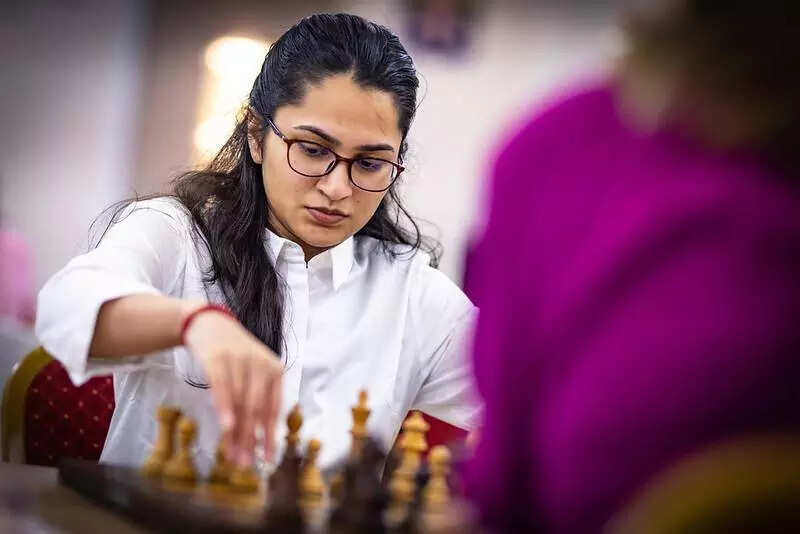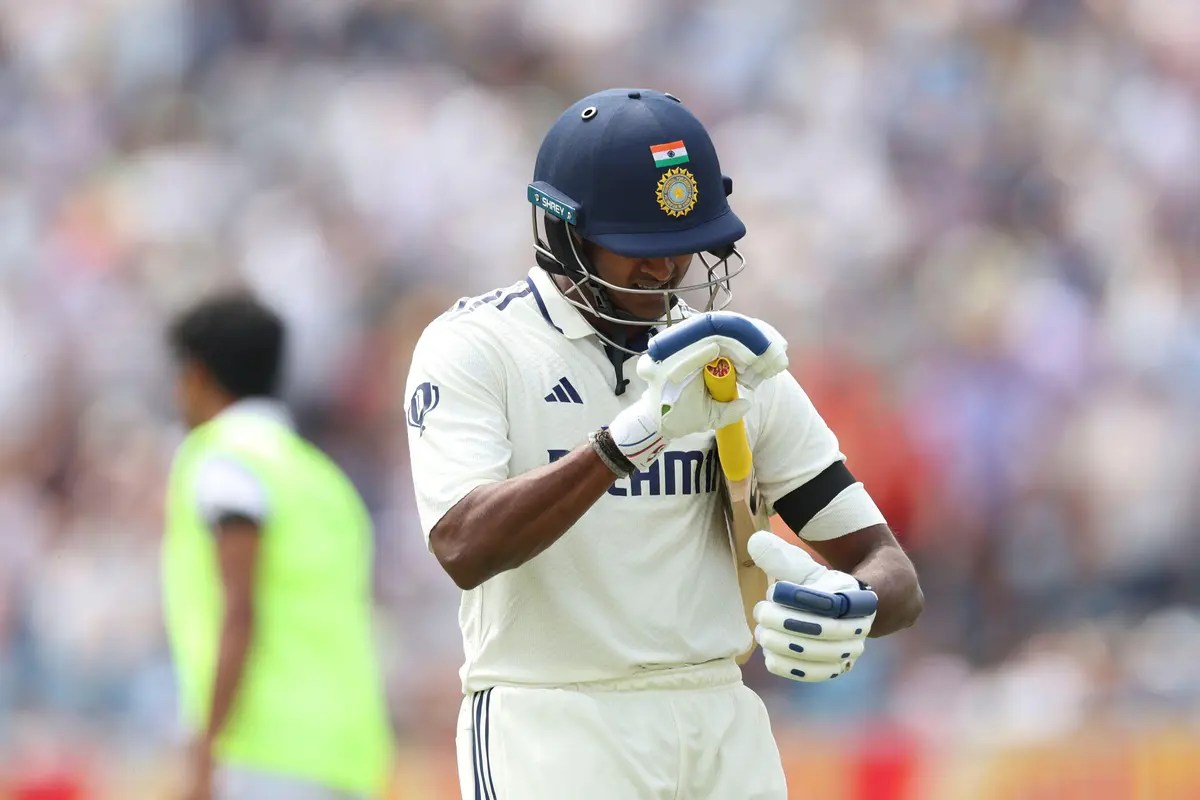Chess | ‘No assist in male-dominated society’: Divya Deshmukh turns into India’s 4th feminine GM, however why aren’t there extra? | Chess Information
NEW DELHI: In a nation of over 1.5 billion individuals, each milestone carries weight. Nevertheless, some triumphs transcend private accomplishments as they make clear uncomfortable truths. Divya Deshmukh’s current victory on the FIDE Girls’s World Cup was one such second.At simply 18, the Nagpur-born grew to become India’s 88th Grandmaster (GM), becoming a member of an elite membership that represents the head of chess achievement throughout the globe. However hidden behind the applause and accolades lies a sobering truth: Divya is just the fourth lady from India to earn that tag. In a rustic with one of many world’s fastest-growing chess ecosystems, why have solely 4 girls made it to the highest, whereas greater than 80 males have achieved so?The disparity isn’t just statistical; it’s symptomatic of a deeper concern.Go Past The Boundary with our YouTube channel. SUBSCRIBE NOW!For GM Harika Dronavalli, the highway to success started with one thing deceptively easy.“I used to be launched to chess at a younger age by my household, and whereas I loved it, the second that actually sparked my drive was seeing a rolling trophy being awarded to the winner of an area event,” Harika, who started her chess journey on the age of seven, tells TimesofIndia.com.“That stayed with me. I needed to win one myself. The next yr, I went on to win the Nationwide Championship in my age class. That victory modified all the pieces.”That change set her on a journey that led to international recognition, but it surely wasn’t all the time simple.“Again then, chess didn’t get as a lot public consideration or sponsorship assist,” she recollects. “It was onerous to maintain motivation. The respect that younger gamers obtain as we speak was a lot tougher to come back by once I was beginning out.”

Chess participant Harika Dronavalli (R) (Photograph by Salah Malkawi/ Getty Photographs)
But Harika is fast to make clear that her struggles weren’t all the time gender-specific. “I wouldn’t say I confronted challenges that had been particularly due to my gender. I’ve been lucky in that regard,” she explains. “However ladies should not pushed to pursue bold objectives in the identical means boys are. That’s a actuality. The expertise is actually there, however societal expectations typically clip these wings early. If we nurture aspirations from a younger age and supply the proper assist system, teaching, competitors, and confidence, we’ll begin to see that hole shut.”GM Srinath Narayanan, a coach and one of many nation’s most revered chess minds, has spent years working with India’s prime gamers, each women and men.When requested why India has solely 4 feminine GMs, his response is each clear and layered.“There are a number of interrelated causes. Chess, like many different fields, displays broader societal patterns. Women in India typically face extra stress to prioritise lecturers or home obligations over sports activities. Additionally, chess calls for sustained funding: time, journey, teaching, and households could hesitate to assist ladies long-term in such a profession,” he says.“There’s a noticeable drop-off after the age of 13-15, when many promising woman gamers decelerate or stop. Security considerations throughout journey, and even throughout coaching additionally put ladies at an obstacle.

Srinath Narayanan
“From a really younger age, boys compete in stronger open swimming pools with different boys, whereas ladies compete in a weaker pool with different ladies. That has long-term penalties. Competing in a weaker subject limits their development. The ladies who’ve gone on to interrupt these shackles typically compete in open sections from a really younger age. However that’s not a straightforward resolution. Being the very best lady participant on the planet presents extra consolation and safety than being quantity 100 within the open part, which doesn’t get you very far financially. So girls are incentivised to compete solely amongst themselves, the place the ceiling is way decrease.”This entrenchment of gendered expectations creates a self-fulfilling prophecy.“The mindset that males are superior to girls in chess isn’t useful,” the 31-year-old Grandmaster provides. “Though that is utterly unfaithful, repeating it sufficient occasions makes it a part of our perception system. A perception of being inherently inferior causes decrease confidence ranges, decrease expectations, and turns into a self-limiting issue.“Chess is dear, and until a participant has sturdy backing, it’s powerful to maintain going, particularly with out rapid outcomes. As ladies get older, there’s typically extra stress to adapt to conventional roles, prioritise lecturers, or go for “safer” profession paths.”Worldwide Grasp (IM) Vantika Agrawal, one of the promising younger feminine gamers in India, a three-time gold medalist on the Chess Olympiad, and Arjuna Award recipient, factors to a number of sensible roadblocks, with one in all them being the issue in enjoying tournaments overseas as they provide increased scores and higher possibilities to win a GM norm (a participant should earn three GM norms and cross the 2500 FIDE score mark to turn out to be a GM).

Vantika Agrawal
“It’s financially difficult to play a variety of tournaments overseas. They want an accompanying individual to journey with them, whereas boys begin travelling alone from an early age,” the 23-year-old explains.“Feminine gamers don’t get a lot alternative to play with a lot stronger gamers, which hampers their development. Enjoying in solely feminine tournaments can result in a scarcity of publicity to completely different kinds of play.“And our society remains to be male-dominated. Girls don’t get equal alternatives and assist.”Vantika is candid about what wants to alter.“Feminine gamers want monetary assist to allow them to acquire expertise enjoying higher-rated tournaments overseas and the publicity wanted to succeed in the subsequent stage. Extra grandmaster spherical robins with (2500-2600 rated GMs) must be carried out in India, and upcoming prime feminine gamers ought to get an opportunity in that. It’ll assist them to enhance and obtain norms quicker.”Sreekar Channapragada, co-founder of MGD1, which manages lots of India’s prime Grandmasters, agrees that the foundation of the issue is structural.“The best reply is a scarcity of assist. There’s inadequate backing from mother and father, coaches, federations, and even sponsors. That makes it onerous for women to see chess as an actual profession path. Fewer of them keep it up, and meaning fewer potential feminine Grandmasters,” Sreekar opines.“There’s a have to nurture perception in feminine gamers that they don’t seem to be held again in any means from competing on the highest ranges. They’ll compete within the open class and nonetheless come out victorious. We regularly see perception at a younger age. But it surely fades as they get older. That should change.”ALSO READ: ‘Security protocol’: Why Divya Deshmukh played World Cup-winning move inside empty venueSo what could be achieved?The solutions are many, however they converge on one level: there have to be coordinated motion from each stakeholder within the chess ecosystem. Mother and father should encourage their daughters’ ambitions. Coaches should scout and mentor feminine expertise with long-term plans. Federations should create inclusive insurance policies and prioritise feminine illustration. Sponsors should step up with dedicated monetary assist. And most of all, society should consider, actually consider, that ladies could be Grandmasters not despite their gender, however no matter it.Divya Deshmukh’s GM title, earned regardless of having no norms earlier than the Girls’s World Cup, is a monumental second in Indian chess historical past, but it surely shouldn’t stay an anomaly. It must be a spark. As a result of the actual victory will come when her story isn’t distinctive, however anticipated.
latest video
latest pick
news via inbox
Nulla turp dis cursus. Integer liberos euismod pretium faucibua



















